What is Business Intelligence?

Data has a lot to tell us: stories, decisions, strategies. Now, what is Business Intelligence and what role does it play around information? Business Intelligence shapes the data, gives it meaning and facilitates its understanding. It is a set of processes that help companies make informed decisions.
Its main objective is to convert this raw data into insights, valuable information that improves the performance of companies and, above all, improves decision making.
What is business intelligence for?
Business Intelligence (BI) refers to the set of processes that help companies make data-driven decisions.
Every day, companies work with a large amount of data: from operations and financial transactions, to interaction with customers and suppliers. Data from multiple sources of information that, a priori, do not make sense together.
Business Intelligence allows companies to know their own history through data thanks to its better analysis, understanding and visualization through dashboards.
So much information overwhelms us and we do not have enough time to collect the most relevant data and make reports that give a cross-sectional view of everything that is happening in the company. A problem that many companies face and that is more common than we think. That is what Business Intelligence is for. To, through various applications and technologies, collect, store, analyze and visualize data in a way that really helps teams.
Understanding what is Business Intelligence is the first step to give value to our data. Giving them shape and presenting them in reports, dashboards, tables, charts, graphs and other visual elements that help us to consume them in a more friendly and fast way.
How does Business Intelligence work?
Business Intelligence is not a magic wand that from one day to the next will give order and sense to all the data you have on the table.
In order for the information to deliver for you, it requires effort and time on your part. To do this, Business Intelligence solutions typically include a variety of components including:
1. Extraction, Transformation and Loading (ETL).
A data integration process used to combine data from different sources into a single, consistent data set for loading into a data warehouse. It involves transforming the data into a format that is useful.
2. Data Warehouse
A centralized database that stores historical and current company data and is optimized for query and analysis. The goal of the Data Warehouse is to transform raw data into useful information, making it available and accessible to users.
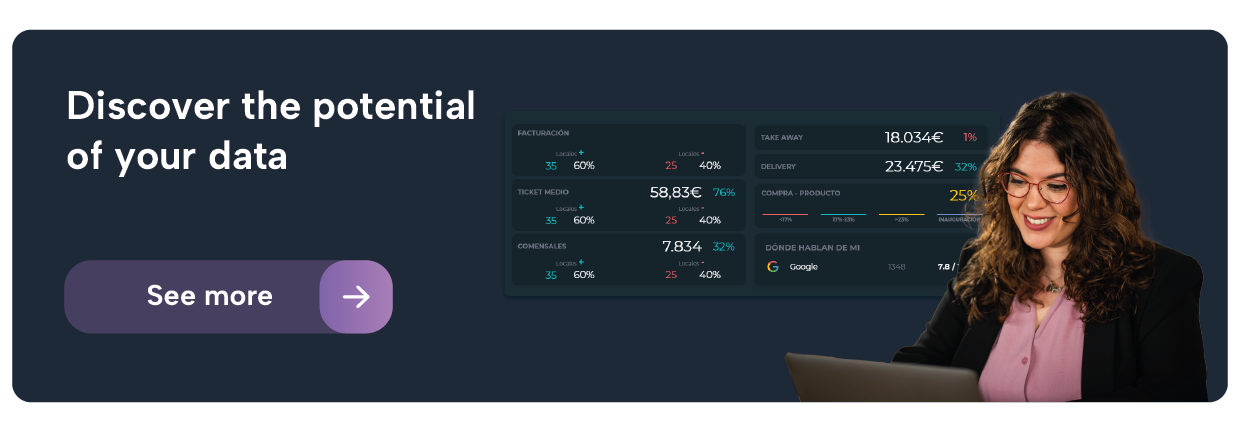
3. Analysis and reporting
Use tools to analyze data and generate reports that summarize the information clearly and concisely. Moreover, if this is done with visual tools such as dashboards, so much the better.
4. Data mining and predictive analytics
Techniques to discover patterns and trends in data. In this way, we will be able to make forecasts and perform predictive analysis, anticipating when making decisions and not acting reactively.
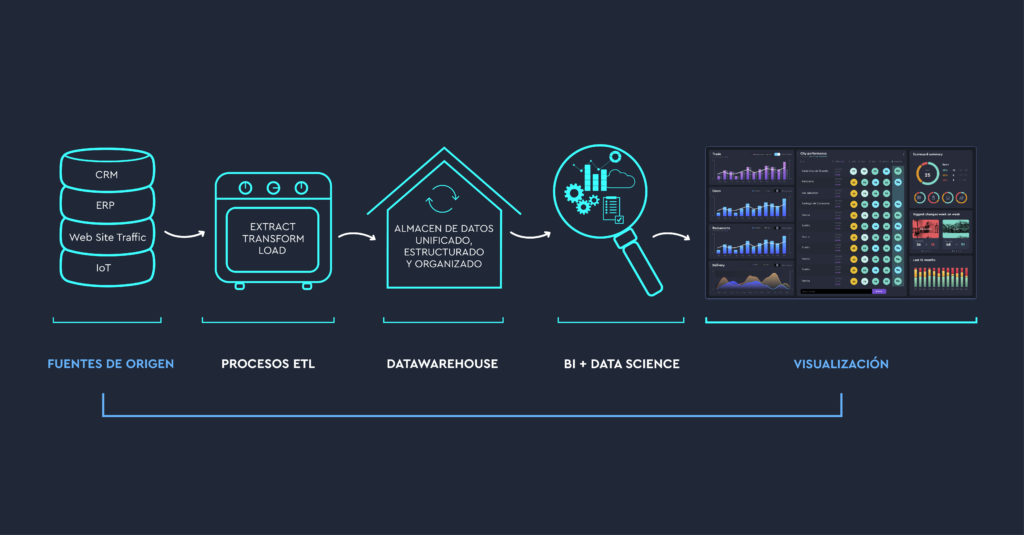
6 benefits of Business Intelligence for companies
Discover the 6 benefits of Business Intelligence for decision making in companies:
- Improved ability to analyze internal and external information from various sources and systems.
- Extensive reporting capabilities. Knowing what is really going on in the company, without presuppositions or intuition.
- Ability to make future projections based on all the information we have collected.
- Agile and informed decision making. Having accurate information at their fingertips allows leaders and decision makers to better evaluate all scenarios and define a strategy in an objective and realistic manner.
- Complete data visibility. Business Intelligence makes it possible for companies to have a transversal, complete and unified vision of the information. In addition, relationships between data that would otherwise not be possible are detected.
- Improved competitiveness. Another advantage of Business Intelligence is that by having such direct access to information, it helps the team to better understand customers, optimize operations and resources, and adapt quickly to changes in the business environment. This undoubtedly helps companies stay ahead of the competition.
These are just some of the benefits of Business Intelligence, which is a process that leads to an intelligent decision-making process, providing accurate data that can be analyzed in real time.
Why do companies bet on BI tools?
It’s simple. Decisions must be based on data. In fact, more and more companies are becoming data-driven, i.e. companies that make decisions based on data analysis and interpretation. Thus, the goal of companies is to turn their culture around, educating teams that decisions are no longer made based on personal and subjective perceptions or beliefs.
Thus, business intelligence tools go beyond being analysis and business intelligence software. They are the basis for developing the culture and strategy around data. This tools facilitate data access, analysis, monitoring and visualization. They are analysis tools that import, organize, clean and analyze data.
In addition, some of the common functionalities of Business Intelligence platforms are:
- Customized dashboards.
- Faster data mining capabilities.
- Real-time tracking of KPI performance and advanced data analysis capabilities to interactively exploit, filter and segment data.
- Security and access control, as well as data quality management and monitoring for IT departments.
5 Business Intelligence tools
Basing our decisions on data is key. The commitment to a data-centric culture and the empowerment of teams through data is necessary if our company wants to survive in today’s business environment. However, leaders need business intelligence tools that make the road easier. They help to see the data, consume it and understand it. These business intelligence tools allow importing, cleaning and analyzing data, as well as forecasting with it.
Now, what are these Business Intelligence tools? Here are some examples:
1. Power BI
One of the most popular Business Intelligence tools for data visualization and analysis on the market. Power BI is a business intelligence service developed by Microsoft whose objective is to convert data from a wide variety of sources into interactive tables and BI reports. In addition, dynamic data dashboards are created through which you can navigate and adapt according to the metrics that interest you at any given time.
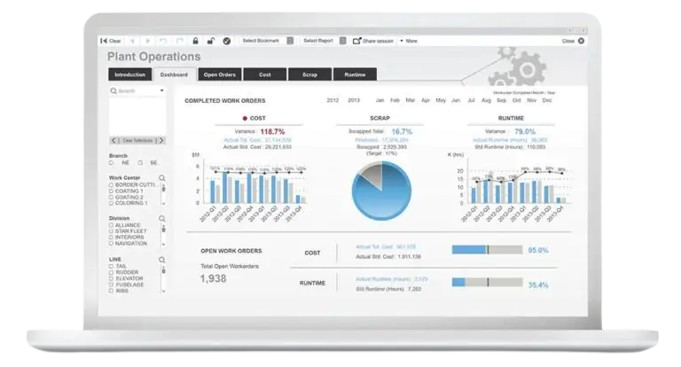
2. Tableau
Very popular business intelligence software, focused on interactive data visualization through dashboards.
In Tableau dashboards, data sources can be combined, creating very complete and detailed reports that can be shared with different users.
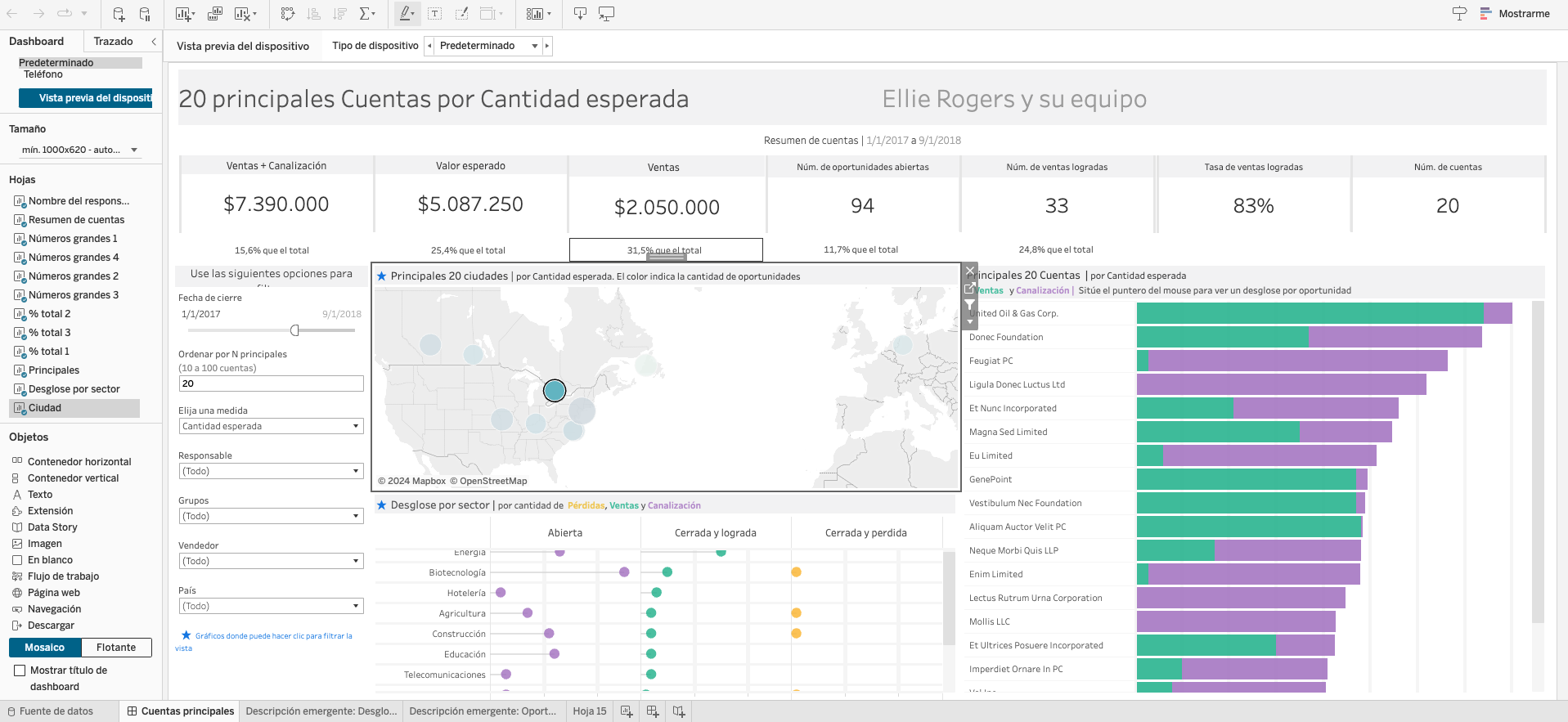
3. Zeus
Business Intelligence tool that gives a global and simple view of the KPIs through dashboards or scorecards.
The difference between Zeus and other BI software is that they are customized dashboards. Different sources of information can be integrated to them, as well as Excel or csv files, and its team of consultants performs a whole advisory work in terms of definition of metrics and dashboard design. It is about giving another visual layer to your data, so that the data-centric culture is fostered in the teams, data communication is improved and it becomes much more accessible and easy to consume. In a matter of seconds, you have a global view of everything that is happening in the department or company, without having to go into different sources of information or having to design your own dashboard in the software.

In addition, Zeus dashboards are interactive, and a system of alerts and push notifications can be activated to inform you of any unexpected events or achievements.
4. Qlikview
Business intelligence tool that also allows you to combine data from different sources. In addition, in Qlik the user can create reports at will, choosing the metrics and graphs they consider most appropriate and get insights quickly through this BI software.
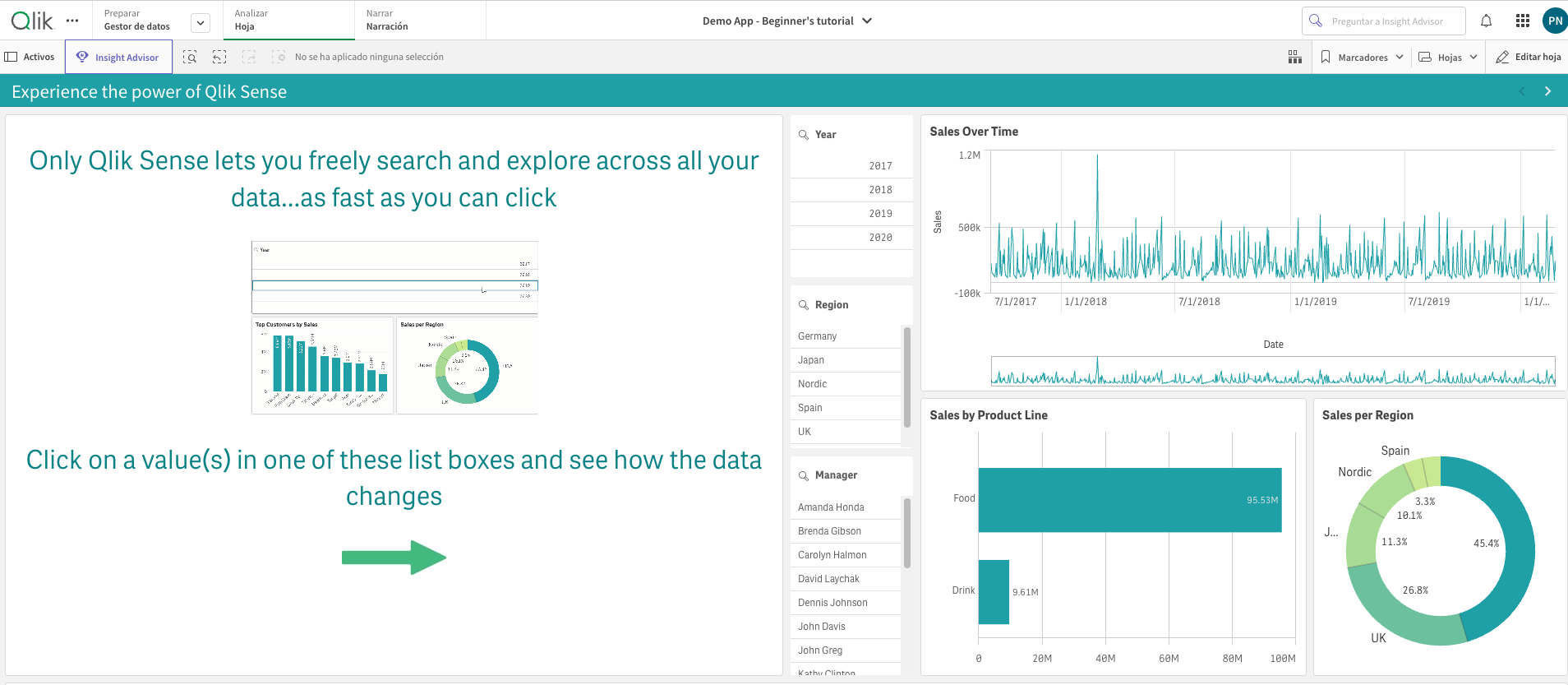
5. Google Analytics
A free BI tool from which you can make an analysis and monitoring of advertising campaigns and main KPIs related to your website. A way to have control over the performance of your website, as well as the conversions and behavior of your users.
It offers a simple and easy to understand dashboard, with the possibility of configuring dashboards with the metrics you are most interested in. It is one of the most popular and widely used Business Intelligence tools in the world.
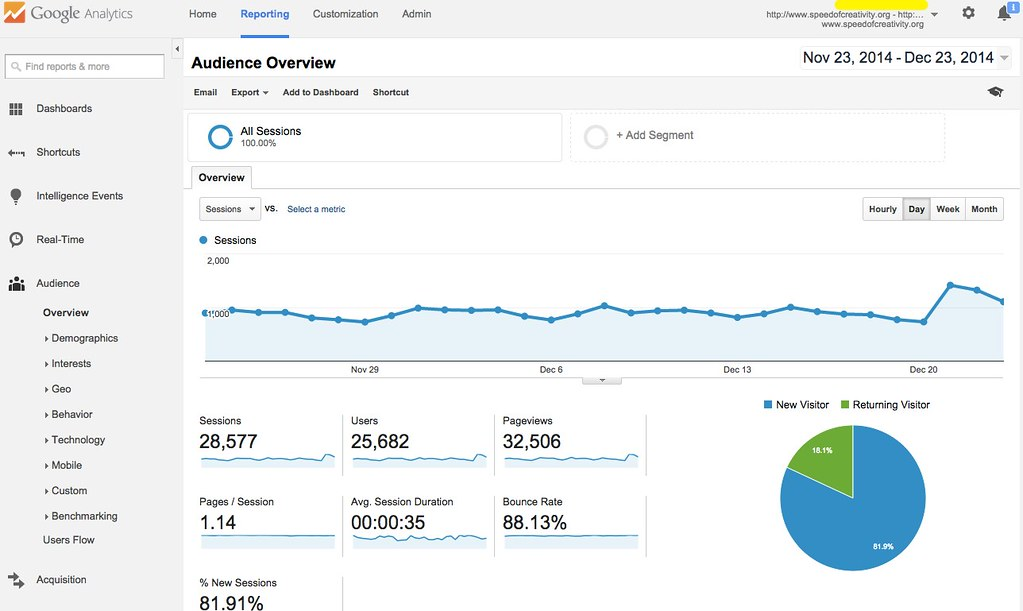
How Business Intelligence transforms real-time data management
Business Intelligence is not only about analyzing historical data, but also about understanding what is happening in real time. Besides, here are two key aspects of how business intelligence transforms data management in real time:
1. Interactive dashboards and real-time updates
- Customized business dashboards offer a global and real-time view of the performance of the company and all its departments. They are the tool that brings the data closer to the team and allows decision makers to take immediate action, since they have the information of everything that is happening at their disposal.
- Having the data available and at a glance allows us to make decisions in an agile and proactive way. We can also perform predictive analysis, as we can quickly identify trends and anomalies.
2. Real-time predictive and prescriptive analytics
- Business Intelligence not only helps us to understand what has happened in our company; it also helps us to foresee what could happen and take action accordingly. If, for example, we are a clothing ecommerce and we know that there is a certain probability of rain next week, we will be able to anticipate and launch product offers that could be useful for our customers: raincoats, umbrellas, rain boots, etc. Thanks to advanced algorithms, we anticipate future trends and events, taking specific actions that ultimately help us achieve better results.
- By integrating real-time predictive analytics into business processes, organizations can anticipate market demands, identify cross-selling opportunities and optimize resource allocation more effectively. This gives them a significant competitive advantage in an ever-changing business environment.
Boost your business with Business Intelligence
In short, Business Intelligence is much more than just a tool or technology; it is a business philosophy that seeks to maximize the potential of data to drive growth and innovation and turn that data into insights. By adopting a business intelligence strategy, companies improve decision making, optimize operational efficiency and increase profitability. In an increasingly competitive world, Business Intelligence becomes a key asset for any company that wants to ride the wave of innovation and digitization.



